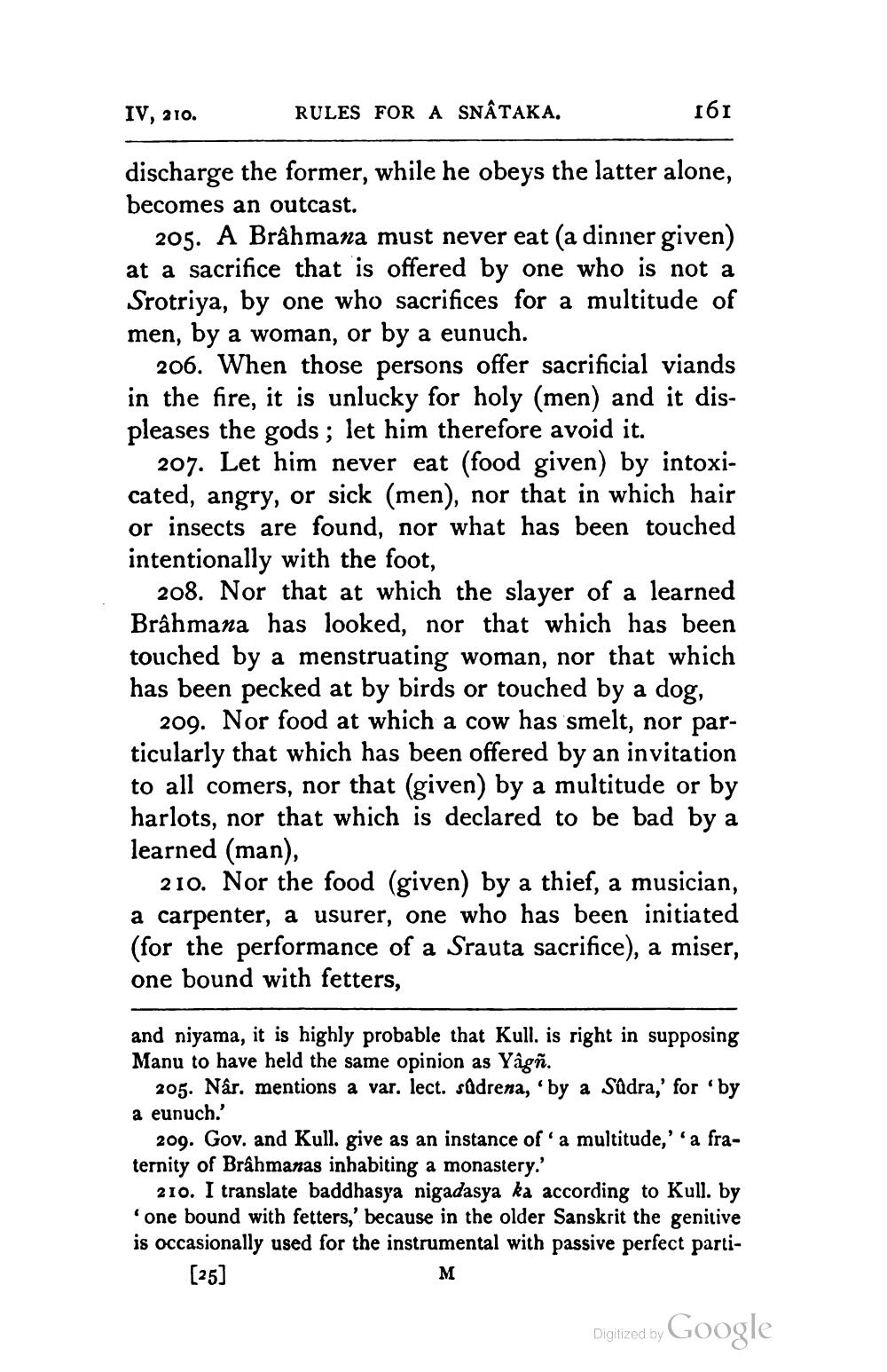________________
IV, 210.
RULES FOR A SNATAKA.
161
discharge the former, while he obeys the latter alone, becomes an outcast.
205. A Brâhmana must never eat (a dinner given) at a sacrifice that is offered by one who is not a Srotriya, by one who sacrifices for a multitude of men, by a woman, or by a eunuch.
206. When those persons offer sacrificial viands in the fire, it is unlucky for holy (men) and it displeases the gods ; let him therefore avoid it.
207. Let him never eat (food given) by intoxicated, angry, or sick (men), nor that in which hair or insects are found, nor what has been touched intentionally with the foot,
208. Nor that at which the slayer of a learned Brâhmana has looked, nor that which has been touched by a menstruating woman, nor that which has been pecked at by birds or touched by a dog,
209. Nor food at which a cow has smelt, nor particularly that which has been offered by an invitation to all comers, nor that (given) by a multitude or by harlots, nor that which is declared to be bad by a learned (man),
210. Nor the food (given) by a thief, a musician, a carpenter, a usurer, one who has been initiated (for the performance of a Srauta sacrifice), a miser, one bound with fetters,
and niyama, it is highly probable that Kull. is right in supposing Manu to have held the same opinion as Yâgñ.
205. Når. mentions a var. lect. sadrena, 'by a Sûdra,' for 'by a eunuch.'
209. Gov. and Kull. give as an instance of a multitude,' 'a fraternity of Brahmanas inhabiting a monastery.'
210. I translate baddhasya nigadasya ka according to Kull. by one bound with fetters,' because in the older Sanskrit the genitive is occasionally used for the instrumental with passive perfect parti
[25]
M
Digitized by Google




